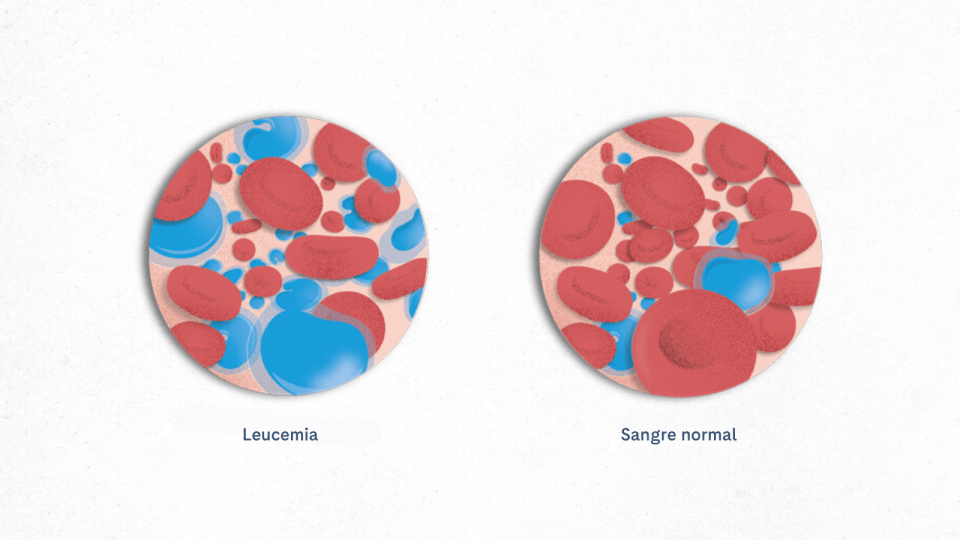Chronic Lymphocytic Leukaemia (CLL) or B-Cell Chronic Lymphocytic Leukaemia is a type of bone marrow cancer that affects B lymphocytes, one of the cells in the immune system. It is the most common leukaemia in adults, especially those over 70 years of age, although it can occur in younger people.
CLL is notable for its slow development, which means that many patients do not need any immediate treatment and can live for years without symptoms. However, when the disease progresses, it may manifest itself through an increase in the size of the lymph nodes or an increase in the lymphocyte count in the blood.
CLL is often detected by chance in routine blood tests, since many patients have no symptoms at first. When the disease progresses, symptoms such as fatigue, fever, weight loss and sweating may appear. The diagnosis is confirmed with blood tests and, in some cases, with additional bone marrow studies or imaging tests.
CLL treatment is usually not started immediately after diagnosis. Treatment is chosen based on the patient's age, general health and the genetic features of the disease. Treatment options include immunotherapy and oral medications, which are generally well tolerated. Chemotherapy is not a common treatment for this disease and is used only in the most aggressive cases.
The prognosis for CLL varies from person to person. Many patients respond well to treatment and can lead a normal life for many years. However, a small percentage of cases may not respond to treatment or may evolve into a more aggressive type of lymphoma: this process is known as Richter’s transformation.
INFORMATION DOCUMENTED BY:
Dr Pablo Mozas and Dr Nil Albiol, Haematology Service at the Hospital Clínic Barcelona






